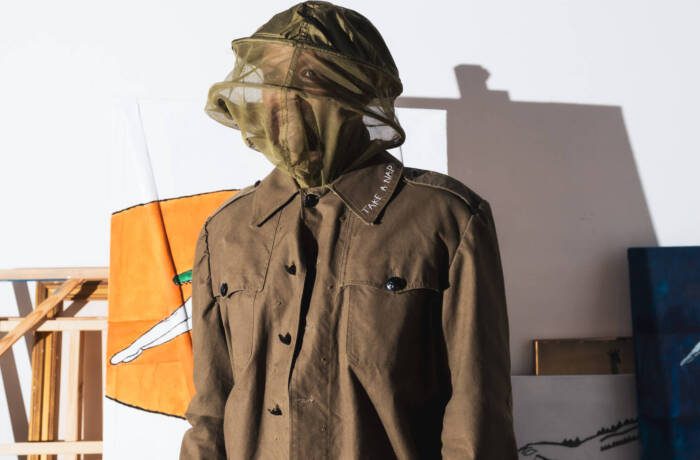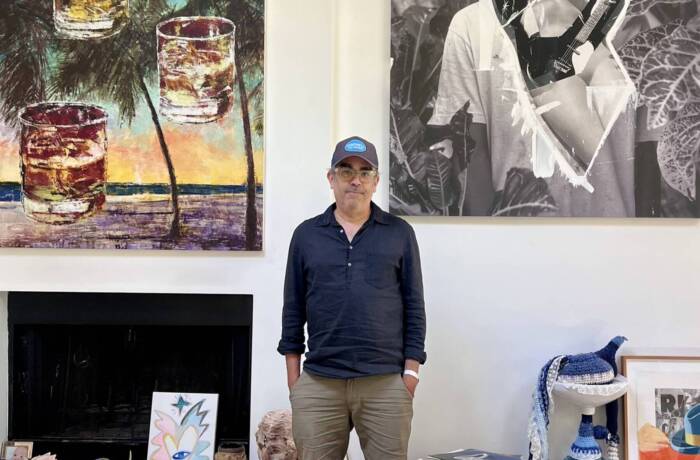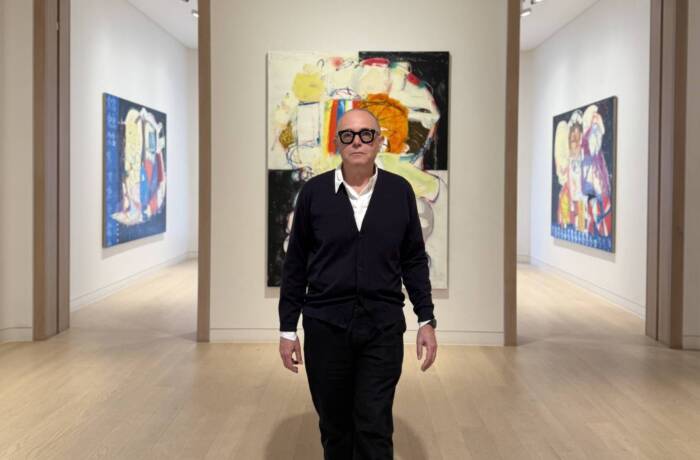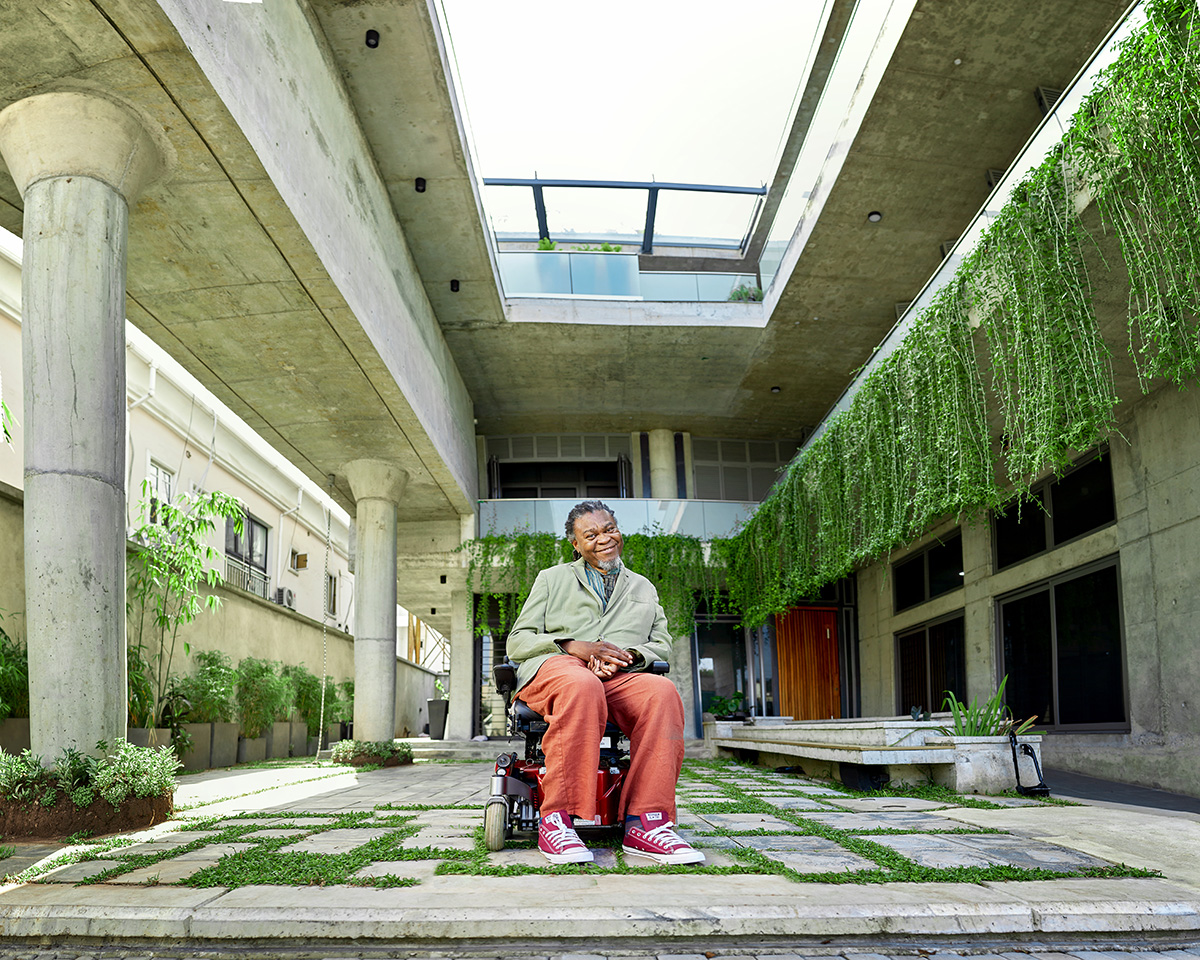
Yinka Shonibare at the Guest Artists Space Foundation, Lagos, one of two artist residencies he has established in Nigeria
The Birtish-Nigerian artist and philanthropist is the official artist of, LUX’s partner, Deutsche Bank Wealth Management, at this year’s Frieze in London. In just a few short years, the Guest Artists Space Foundation spaces in Nigeria, founded by Yinka Shonibare, have seen art residences that are inspiring transformative creative conversations and programmes between artists, local communities, activists, ecologists and more. Will Fenstermaker reports
It used to be the case that if an artist working in Africa wanted a prestigious residency at which to hone their practice and dedicate uninterrupted time to their work, their best option was to look towards Europe and North America, where many programmes sought to address colonial legacies by strengthening a sense of artistic internationalism. A growing cadre of artists, including Kehinde Wiley and Yinka Shonibare, are now working to expand the opportunities available to African artists by opening residencies directly on the continent, especially focused around emerging art centres including Dakar, Senegal and Lagos, Nigeria.
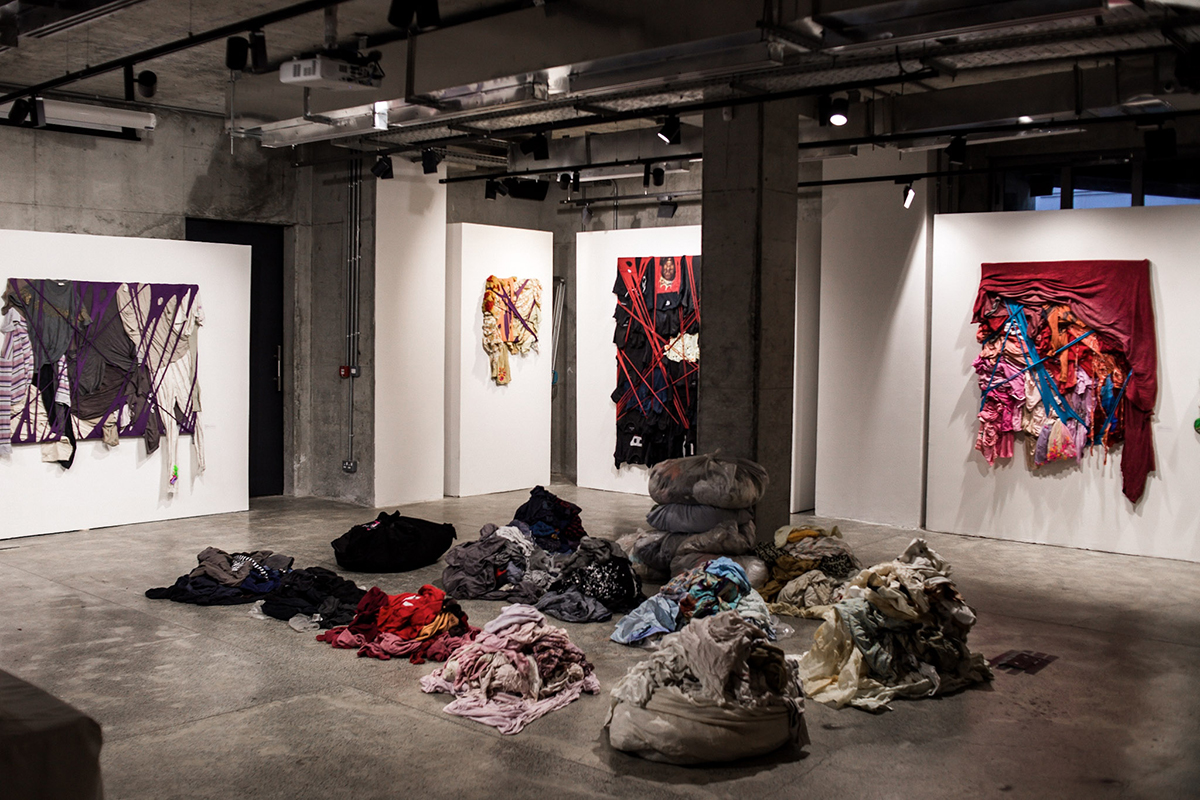
A view of “The Politics of Fabrics” exhibition by Samuel Nnorom
One such initiative is the Guest Artists Space (G.A.S.) Foundation, a non-profit established by Yinka Shonibare that occupies two sites in Nigeria. Through his programme Guest Projects London, Shonibare has hosted artists in his east London studio since 2006, more recently extending to the digital space, enabling “a laboratory of ideas and a testing ground for new thoughts and actions in which the possibility of failure became an opportunity for artistic growth”, according to its website. Shonibare, who was born in London and raised in Lagos, was nominated for the Turner Prize in 2004 for work that investigated postcolonial Nigerian identity, including whimsically ornate sculptures dressed in “African” textiles and shorn of their heads. In recent years, he considered how to extend his guest programme to offer opportunity, support and space for collaboration to artists within Africa.
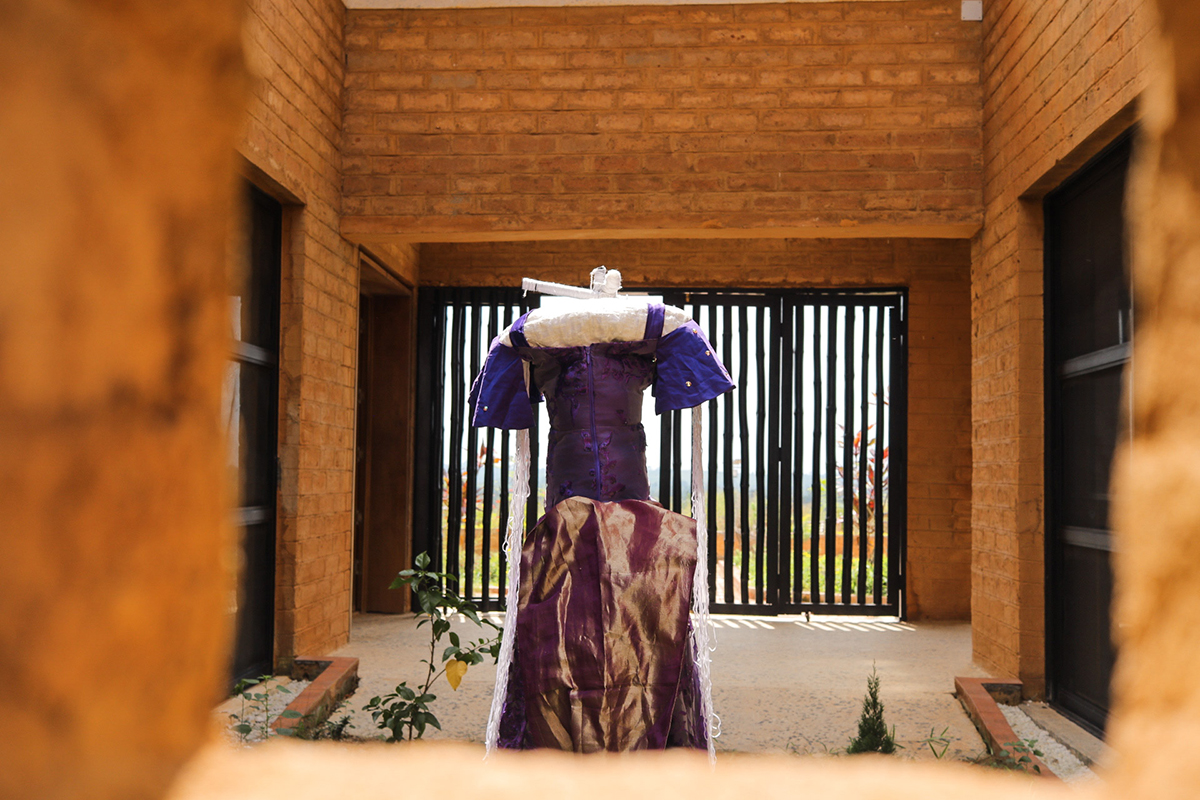
A view of the inaugural exhibition, curated by Miriam Bettin, at the G.A.S. Farm House
In 2019, the project realised a kind of homecoming when Shonibare first conceived G.A.S., with two spaces in Nigeria completed by 2022. The idea is to develop artist practice and facilitate cultural exchange between the continent and the UK. “I realised a lot of local artists wanted platforms in which they could enhance their work and meet other international artists to exchange ideas,” says Shonibare in a video published by the foundation. “I felt very much that I’d love to contribute to building some of the institutions there.”
Follow LUX on Instagram: luxthemagazine
The Oniru, Lagos residency occupies a building that fuses Yoruba and Brutalist principles around a central courtyard, and was designed by Ghanaian-British architect Elsie Owusu in collaboration with Nigerian architect Nihinlola Shonibare. The residency was made open to more than artists – its first class of 2022 included designers, architects, curators, economists and researchers, all of whom, Shonibare believed, were strengthened by a sense of interdisciplinary community and creative dialogue. “I feel that we’re creating a platform for conversation between local people and our residents,” Shonibare says. “I think you actually get the best out of creatives if you put them with people in other disciplines.”
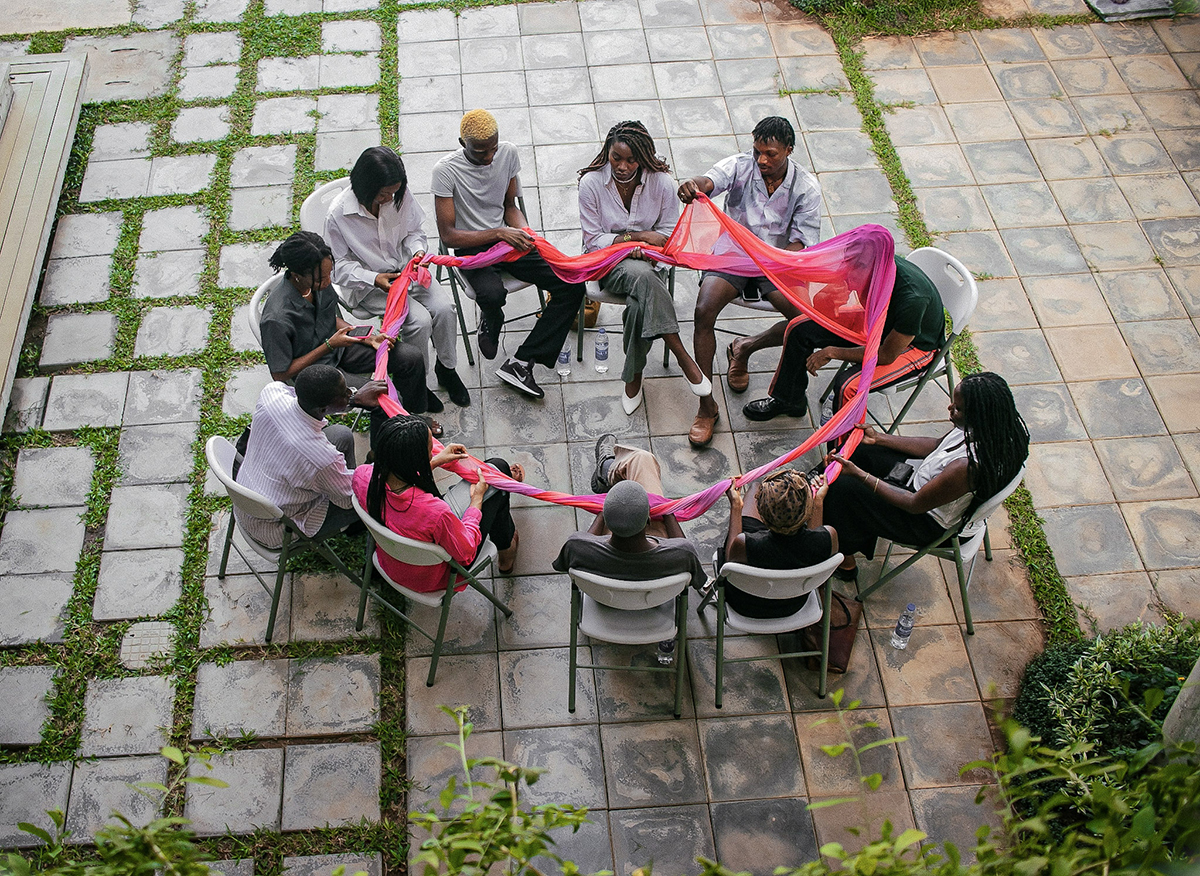
A moment from performance artist Raymond Pinto’s movement workshop
G.A.S. also opened a rural second space three hours outside the capital near Ijebu Ode. Like the Oniru building, the residency in the Farm House, a sustainable building designed by Papa Omotayo with interior design by Temitayo Shonibare, strives to support a conception of culture beyond the visual arts. Belinda Holden, CEO of G.A.S. and the Yinka Shonibare Foundation, the residency’s sister organisation in London, says, “Ultimately, our mission is about breaking down barriers between cultural differences. It’s about building those bridges across different cultures and different practices, and allowing those conversations to develop into opportunities for the exchange of ideas and knowledge.”
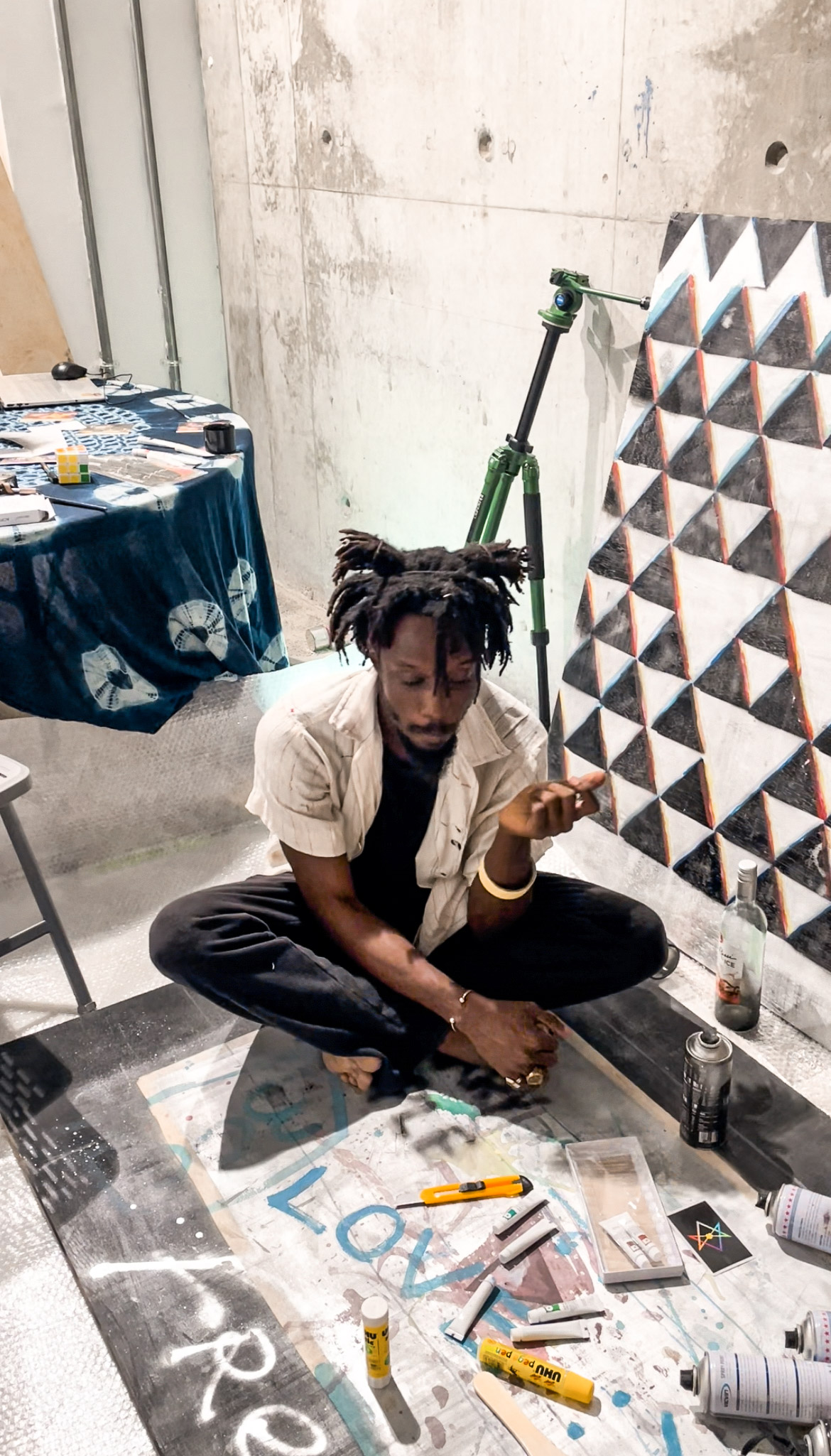
Artist Femi Johnson at work
Yet the residency does embody a certain remit. The pastoral property is on the site of a 54-acre working farm. Corn, cassava, peppers and cashews are all grown on Shonibare’s Ecology Green Farm, established in 2018. This July, the farm welcomed its third set of residents, having previously supported short-term stays for G.A.S. Lagos-based practitioners taking part in the programme. In 2022, as a result of its inaugural open call to artists and researchers living in West Africa, G.A.S. awarded seven funded residencies to individuals based across Nigeria and Benin. Raqs Media Collective was especially motivated by the setting’s ties to the land. At the G.A.S Farm House it established an outpost of the World Weather Network, a project that sees a global network of artists and writers submit “weather reports” in the form of works of art from a “constellation” of weather stations worldwide: In Peru, Luz María Bedoya and Pablo Hare record cloud, fog and associated sounds flowing over Oxapampa; in South Africa, four artists create odes to the Orange River; in Dhaka, in Death Valley, in Svalbard, correspondents from the London Review of Books send dispatches from the extremes of climate change.
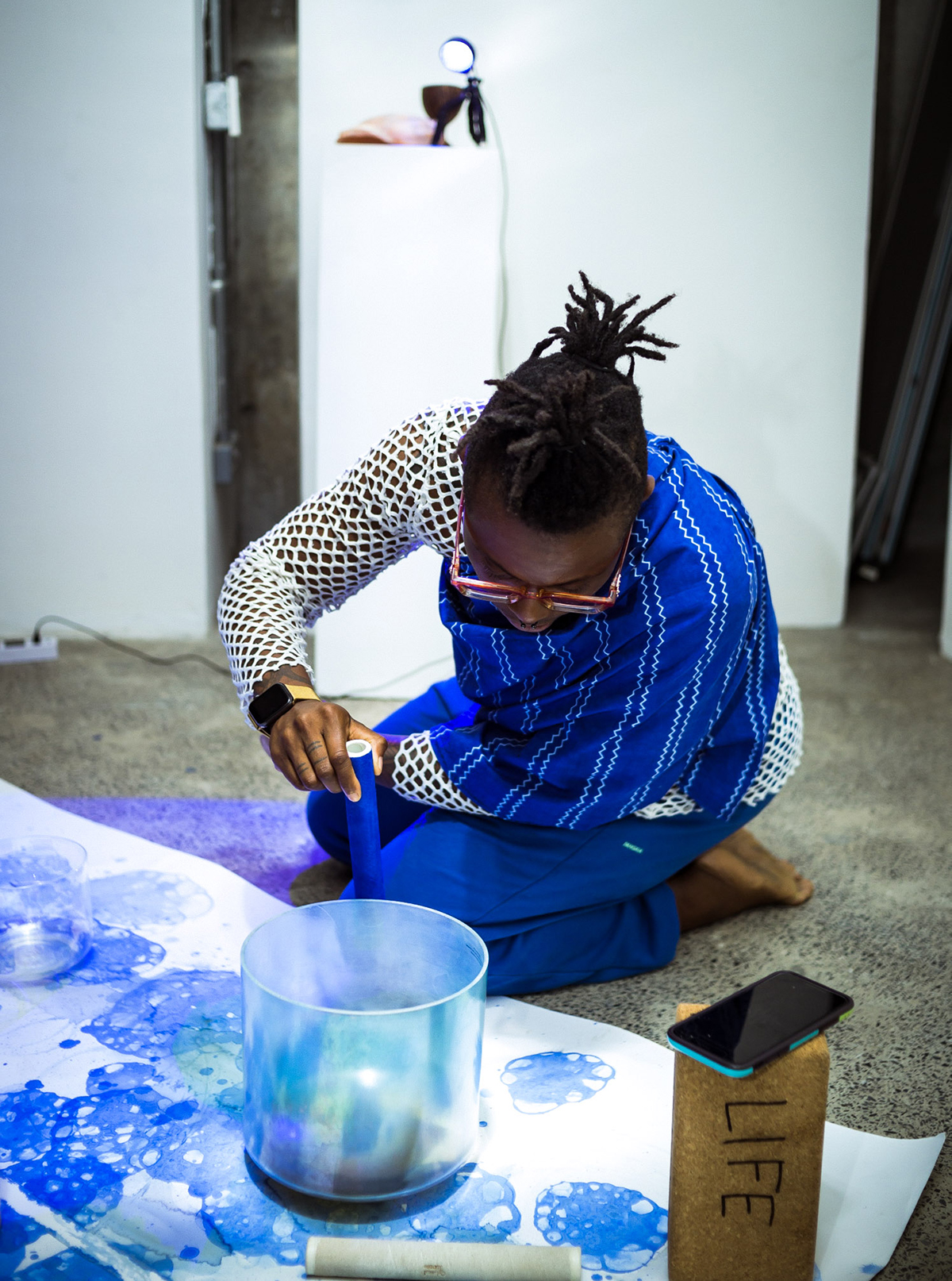
Evan Ifekoya at their presentation “Water Is Life, O!”
During her stay at the G.A.S. Farm House, activist and spatial designer Mariam Hava Aslam began pickling foods from the farm, inspiring Apocalypse Pantry, a project that supplies preserves to food-scarce areas of Lagos. Berlin-based curator and researcher Lynhan Balatbat-Helbock invited artists to cook for residents and share their work over dinner.
Read more: An Interview with Maurizio Cattelan
“We’ve had painters, sculptors, writers, poets, architects. We’ve had digital artists, we’ve had archivists, we’ve had dancers, we’ve had sound designers,” continues Holden. And that’s only year one. “Our aim is that next year we’ll really shift our focus onto the farm and encourage agriculturalists who are interested in land, environment and ecological impact.” For the upcoming year, the foundation is looking to support people “who are considering food and ecology, or thinking about the materiality of the work they produce”.
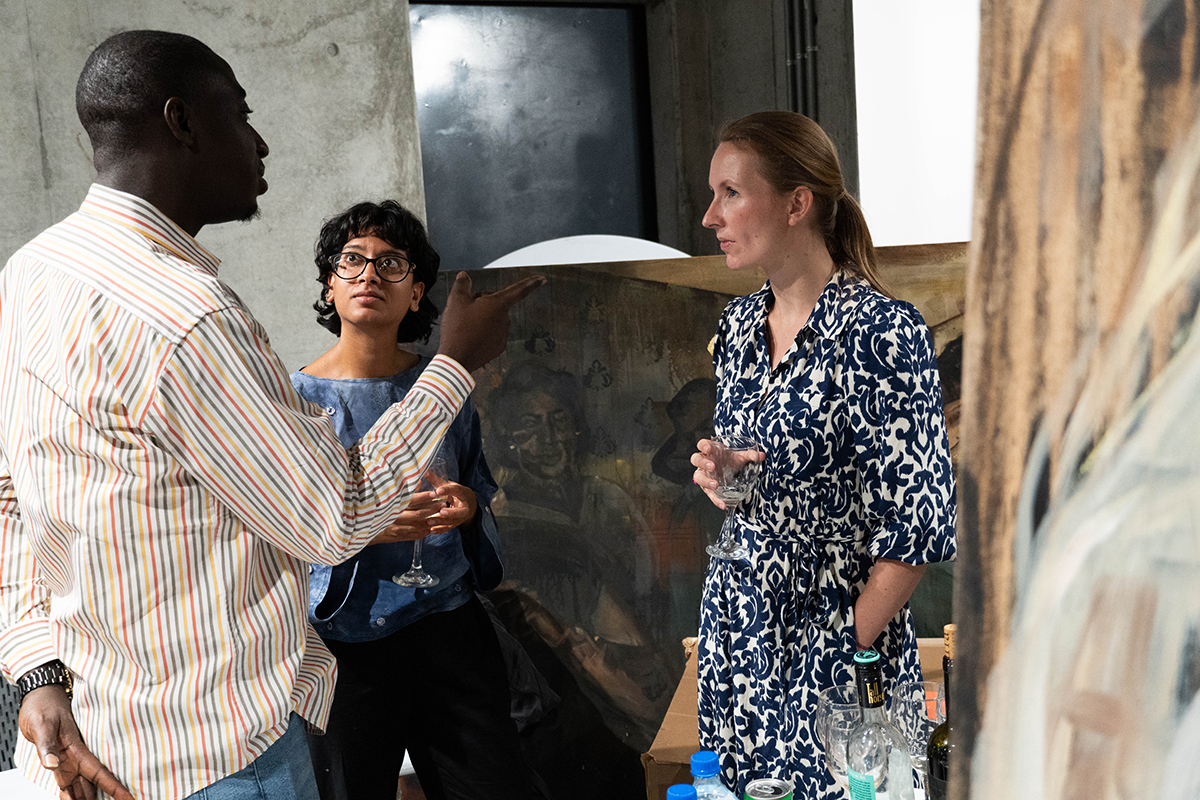
Discussing work by Emma Prempeh
From the start, the ambitious residencies have attracted an impressive amount of institutional attention – perhaps most significantly in the form of a recent donation of material from John Picton, Emeritus Professor at the Department of the History of Art and Archaeology at SOAS, University of London, and Sue Picton. Professor Picton, an expert on Yoruba and Edo (Benin) sculpture, spent decades assembling an important archive of West African art and ephemera, including journals, magazines, pamphlets and books covering Sub-Saharan architecture, textiles, sculpture and more, as well as African American and Black British arts. In 2022, Picton gave 1,500 volumes from the collection to G.A.S., a donation that has inspired the foundation to “look at the role of art libraries across Africa and the role they play in developing, educating and supporting the growth of creative and critical thinking and writing,” says Holden. To that end, this year G.A.S. is seeking fellows to be based in Lagos and focus their work around research into Picton’s archives.
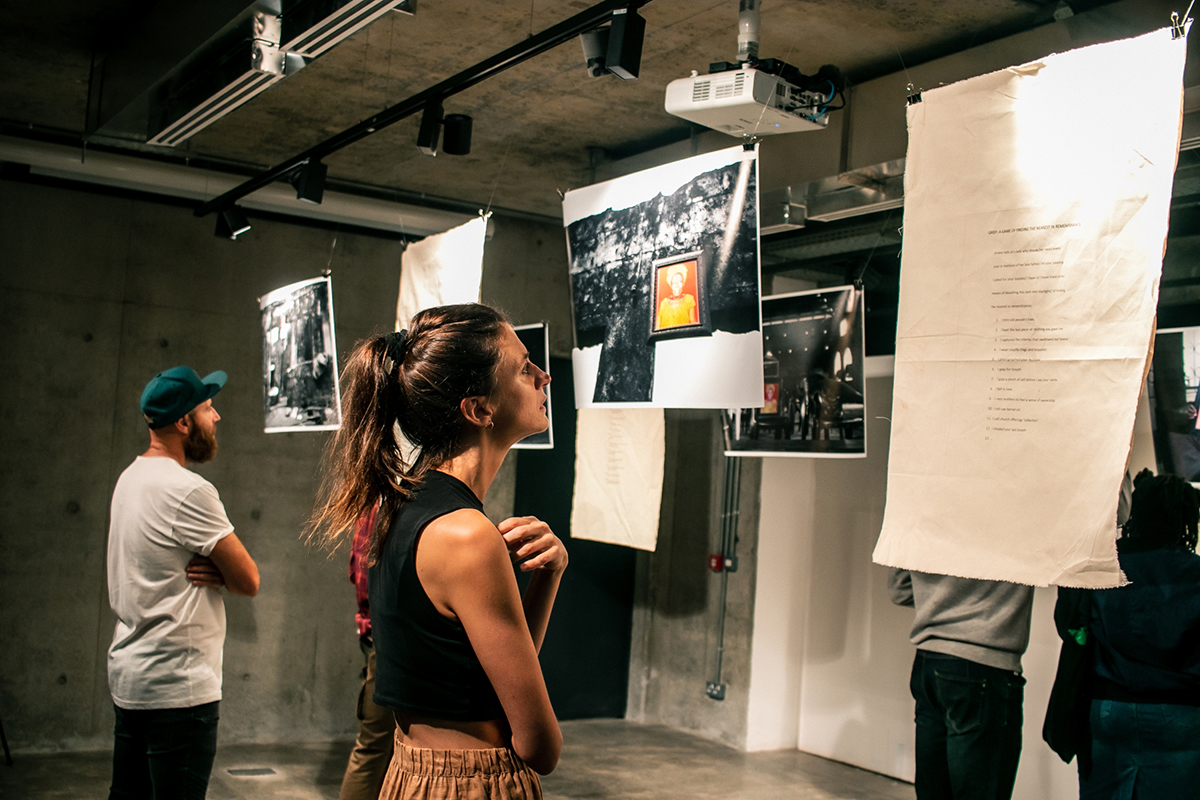
A view of “The Last Time I Called…” exhibition by Ofem Ubi
In just a few short years, G.A.S. has become a beacon of artistic collaboration, cultural exchange and interdisciplinary dialogue. Shonibare’s vision to provide a platform for everyone has blossomed into a vibrant community that extends beyond visual arts, encompassing designers, architects, agriculturalists and ecologists. With its ambitions to break down traditional barriers that have separated the liberal arts, it has firmly established itself as a catalyst for creative and critical dialogue between two regions that have historically been defined by a very different, and much less egalitarian, form of intellectual and labour exchange.
Yinka Shonibare at Deutsche Bank Wealth Management Lounge, Frieze London
Fittingly, for an endeavour that grew out of his artistic practice, Yinka Shonibare’s presentation in the Deutsche Bank Wealth Management Lounge at this year’s Frieze London includes a documentary that showcases the development and aims of Guest Artists Space Foundation. The film supplements a diverse array of visual works, including sculptures, masks, quilts and free-standing sculptures.

